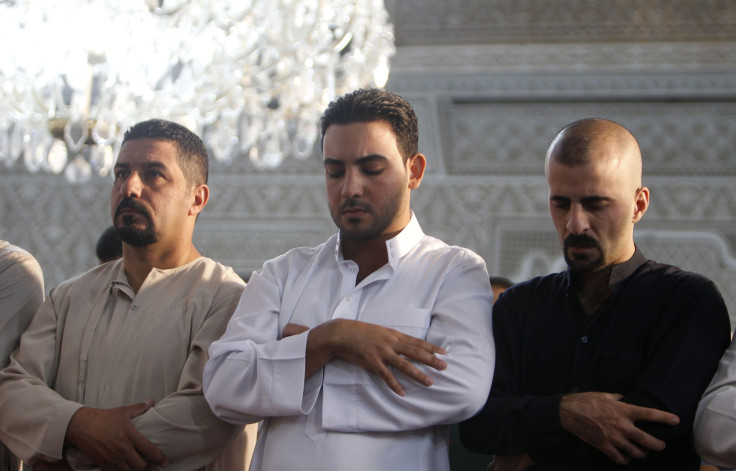Iraq Mosque Attack: Shiite Gunmen Kill 68 Sunni Worshippers, Government Talks Suspended

Shiite militiamen shot and killed dozens of Sunni worshippers at a mosque in Iraq on Friday during an attack that could have profound implications on Iraqi Prime Minister-designate Haider al-Abadi’s bid to forge unity in a government wracked by sectarian tensions.
Moments after a suicide bomber detonated his explosives at Musab bin Omair mosque in Iraq’s Diyala province, a group of Shiite gunman stormed the building and fired on worshippers, the Guardian reports. At least 68 people were killed in the attack, a morgue official said.
"I strongly condemn the targeting and killing of innocent civilians and worshippers in Diyala," Abadi said in a statement. “I call on the security agencies to pursue the killers and subject them to the most severe penalties and expedite the announcement of the investigation's results.”
Salman al-Jibouri, a local Sunni tribe leader, said that his community planned to retaliate to the mosque attack. "Sunni tribes have been alerted to avenge the killings," he said.
Lawmaker Nahida al-Dayani, a Sunni, condemned the attack as a “new massacre” that killed over a third of those who gathered in the mosque on the Muslim day of prayer. “Sectarian militias entered and opened fire at worshippers. Most mosques have no security," she told Reuters. "Some of the victims were from one family. Some women who rushed to see the fate of their relatives at the mosque were killed."
News of the attack prompted the three most powerful Sunni electoral groups within the Iraqi parliament to withdraw their participation in talks to craft a new agreement with the Shiite majority, the Wall Street Journal reports. Abadi, who was nominated for the role of prime minister on Aug. 11, hopes to foster cooperation between Shiite, Sunni and ethnic Kurds within the government to combat the growing threat posed by the Islamic State, the insurgent group formerly known as ISIS.
Similar assaults on mosques were a key element to the escalation to the sectarian civil war that plagued Iraq throughout 2006 and 2007. A renewed wave of attacks and counter-attacks could prevent the Sunni minority within the Iraqi government from compromising with the Shiite majority.
Sunni support of a unified government is seen as a crucial step toward undermining the Islamic State’s popularity outside of Baghdad. The United States relied on similar tactics to curb the growth of al Qaida in Iraq in 2005 and 2006.
© Copyright IBTimes 2024. All rights reserved.






















